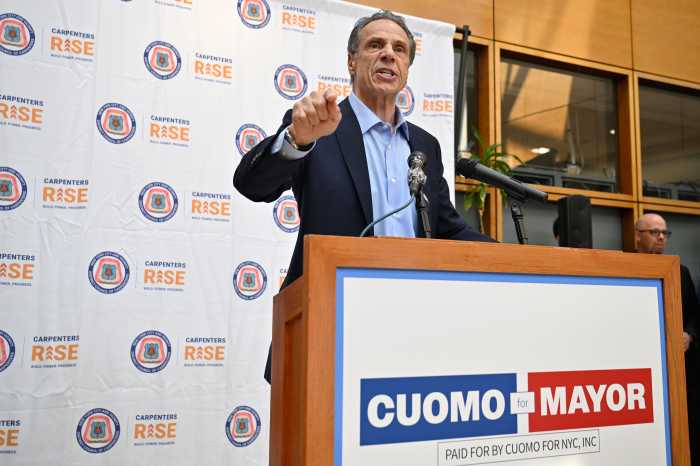
It’s time to get to work.
Last month, lawmakers in Albany wisely chose to remove a provision from the state budget that would have required projects that receive any public funds, tax breaks or incentives to pay all workers a prevailing wage — an hourly rate, usually established in collective bargaining agreements, that is paid to local union workers.
That original bill was far too sweeping and could have made it much more difficult for many developers across the region to construct affordable housing, manufacturing facilities, multifamily developments that need subsidies, and other key projects, because their costs would have increased by as much as 25 percent.
By tabling it, lawmakers gave developers and union leaders an opportunity to get this right. The two groups have begun conversations that could lead to shaping better state legislation that’s fair to both sides.
Find compromise for fairness
Ultimately, they must figure out a middle ground that can make construction unions more competitive with nonunion workers and pay all workers fair wages, while not undercutting the building of much-needed affordable housing. After all, giving workers a prevailing wage would mean very little if those same workers could not afford to live in the region because developers couldn’t build the right housing for them.
There are lots of options. Developers and union leaders could agree to expand prevailing wage requirements, as originally suggested, but make some exceptions, like projects that have a large percentage of affordable units or those that are getting tax breaks because they’re doing work with a public benefit, like cleaning up contaminated properties. They could establish a wider variety of wage levels on a given project, so developers don’t have to pay the highest hourly wage to every worker on every project. Or they could go in a different direction, focusing, for instance, on establishing requirements to hire locally. Some observers say that could improve union members’ chances of getting the work, although others note that it’s possible that local nonunion workers would be hired, too. There’s also the possibility of looking at other wage standards in lieu of the attention on prevailing wage.
Note regional differences
Legislation that includes such changes could give developers and their lenders the assurances they seek to do a wide variety of mixed-use, affordable and other projects, while also providing greater opportunities for union workers and fair wages for all.
Any statewide solution must still be attentive to local concerns and perhaps establish regional standards so there’s a consistency to how the new rules are used, but also an understanding that what works in other parts of the state might not work in NYC or on Long Island. Local union and developer representatives, from the city and suburbs, must be involved in the conversation.
With fresh thinking and a willingness to compromise, there’s likely an answer that could help everyone — the unions, the workers, the developers and the region.





































